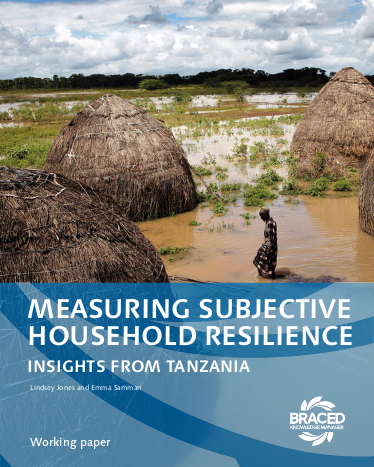
In this paper, the feasibility and utility of a subjective approach to measuring household resilience is explored. Subjective measures comprise of a person’s self-evaluation of their household’s capability and capacity to respond to climate extremes or other related hazards. To date, most quantitative approaches to resilience measurement rely on objective indicators and frameworks of assessment. More recently, subjective methods of resilience measurement have been advocated in helping to overcome some of the limitations of traditional approaches.
While subjective measures may hold significant promise as an alternative and complementary approach to traditional, few standardised quantifiable tools have been tested at scale. With this in mind, a nationally representative survey was carried out in Tanzania to explore perceived levels of household resilience to climate extremes and to assess the utility of standardised subjective methods for its assessment. The focus of the study is primarily on flood risk, examining a range of self-assessed resilience-related capacities and patterns of resilience across socio-demographic groups.
